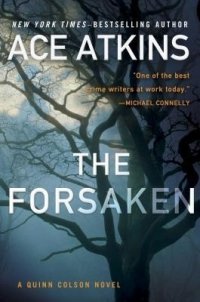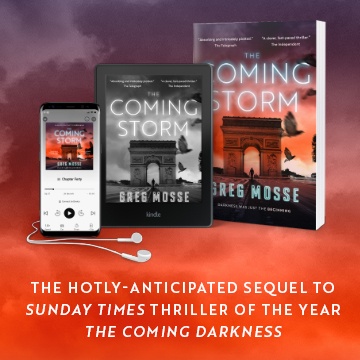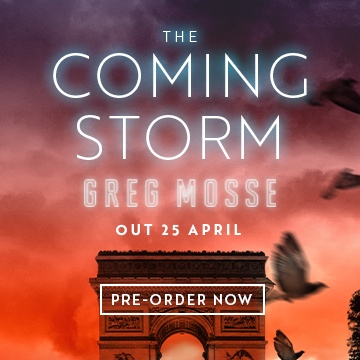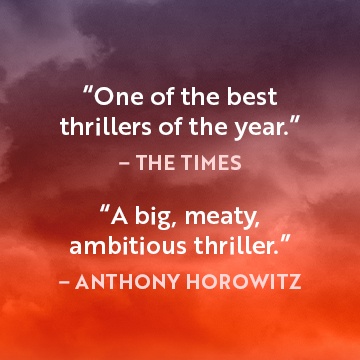This crime thriller series featuring Sheriff Quinn Colson of Jericho, Mississippi has been widely praised for raising the standard in Southern crime novels. It’s a puzzling characterisation. Perhaps it’s inevitable, as cultural homogenization and Wal-Mart have taken over this country, but the people didn’t behave, speak, think, or live in a landscape that seemed uniquely Southern.
Sheriff Quinn Colson does not come off the page. He’s kind of laid back, kind of taciturn, kind of boring. Several of the women characters are more enjoyable such as mart-ass Chief Deputy Sheriff Lillie Virgil (good banter with Colson) and townswoman-with-a-fractured-past Diana Tull. The assorted criminals, low-lifes, and ne’er-do-wells are mostly off-putting and two-dimensional. Also, is it really necessary for there to be a beheading any time Mexicans are involved in a story? It seems like authorial shorthand to show how badass they are. We’ve reached a sorry state when fictional beheading has become ho-hum.
The set-up of the novel is this: In 1977, 17-year-old Diana Tull and her 14-year-old girlfriend Lori Stillwell were abducted on a lonely country road by a badly scarred black man driving a gleaming Monte Carlo. Diana was raped, shot, and left for dead, and Lori was murdered. Within days a local motorcycle gang, the Born Losers (yes, really) vowed to avenge these crimes on behalf of their member, Lori’s father, and abduct a black loner, beat him, and lynch him.
Sheriff Colson’s absent father – a former Hollywood stunt man – was loosely affiliated with the biker gang and witnessed the execution. Colson’s uncle, the former sheriff, allowed the crime to take place and didn’t investigate, following the precepts of the let-sleeping-dogs-lie school of law enforcement. Even though Diana told him she’d seen the murderer again, several weeks after the crime, he did nothing. The lynched man lived alone in a shack in the woods, owned practically nothing and certainly no fancy car; nor did he have the terrible scars that Diana described. Why the townspeople are surprised to eventually learn the wrong man was lynched is a mystery.
Fast-forward to the current day, and the pot is boiling. The old sheriff is dead, replaced by his nephew Quinn. Quinn’s arch-enemy, the drug-dealing whore-monger Johnny Staggs wants to be rid of him and put into office someone friendlier to his self-enrichment schemes. Quinn and Lillie are being harassed regarding several deaths in a shoot-out (a plot-line that is pretty much dropped). Diana is a successful store-owner who, initially egged on by Lori’s father – now an impoverished drunk – has decided for reasons not entirely clear to reignite the investigation into the tragedy of the murder and lynching. Finally we have Chains LeDoux – the leader of the Born Losers in its heyday is about to be released from state prison.
Though the Born Losers are no longer young men, they are at least true to their group identity and rally up to raise hell and keep local tattoo artists and beer distributors in business. To his credit, Sheriff Quinn is not ready to consign the resurfaced lynching to the cold case file, and investigating it predictably causes all kinds of secrets to slither out into daylight.
The novel switches back and forth between events in the late-1970s and the current day. None of those shifts pose a problem in the print book, because the flashbacks are italicised. There’s a map of the area printed on a black background with type that’s too thin to read, making it a little useless. I like maps, ordinarily, and appreciate the impulse.
I’m prepared to believe readers of Atkins’s other four novels in this series have become attached to the characters and may like this one better than I do. While the theme of revisiting past crimes and depredations in order to establish responsibility is worthy, in this book, we learn next to nothing about the nameless victim of the lynching, enabling scant emotional investment in the crime’s unraveling.
Ace Atkins was selected by the Robert B Parker estate to continue writing books for the popular Spenser private investigator series. You can read our review of Lullaby here. Our review of the earlier Quinn Colson novel, The Ranger, is here. Already out as a hardback, the paperback of Forsaken comes out 3 September
Corsair
Print/Kindle/iBook
£8.09
CFL Rating: 3 Stars










